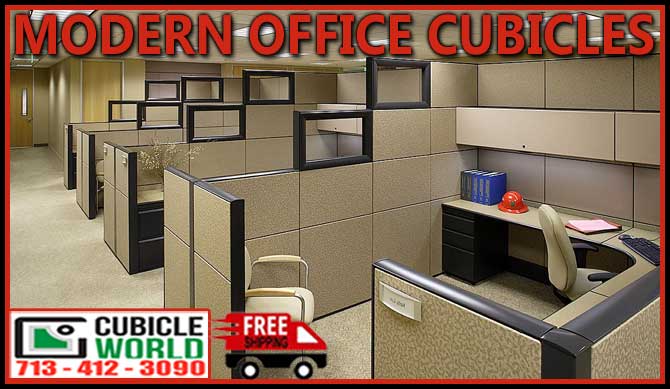
Up until the late 1960’s corporate administrators believed open office layout was the best format for workers. Furniture manufacturer Hermann Miller created the first cubicle in 1967 as a response to the confusion and chaos of open-style offices: rows of desks loaded with clattering typewriters and ringing phones, which was thought of as exceedingly distracting and counterproductive.
Today modern office cubicles absorb and decrease sounds, and cubicle walls cut down on visual distractions. All this makes it more comfortable to perform better at your job. For example, modern office cubicles seamlessly blend technology by including power and data control in panels, so you can simply plugin and position your monitor without bothering your co-workers. Furthermore, office cubicles give engineers and planners versatility when creating office spaces.
Analyze the whole picture: Say that changing to a benching system saves about $1,500 per worker for an office lease of 15 years. The cost of a modern cubicle is likely amortized for the lease because of productivity by the worker who has a more useful workstation like a cubicle. The problem every office administrator must ask is whether the better experience a cubicle offers will likely encourage workers to be more productive.
Incentivized in this way, large corporations have urged office furniture manufacturers to lower prices, which, in turn, have generated weak, marginally functional designs to save on costs. A long flat office desk with a basic cable trough, now called a benching system, is far more economical than providing all the parts and pieces needed for an office cubicle.
The result is a lack of privacy and productivity for employees. In her book Quiet, Susan Cain understands how open office designs are part of a “New Groupthink,” in which collaboration and teamwork must be promoted to a fault. She quotes a marketing director who says, “Employees are putting their whole lives up on Facebook and Twitter…There’s no reason they should behind a cubicle wall.” But when the time calls for thinking deeply, you need sound-absorbing cubicle walls to filter out the distractions.
A recent study by Oxford Economics shows how an open office layout can hinder productivity: 53% of the 1,200 people questioned said they were less productive and comfortable when they could hear ambient sounds. Contact us today.
Modern Office Cubicle Sales – FREE Quote 713-412-3090
